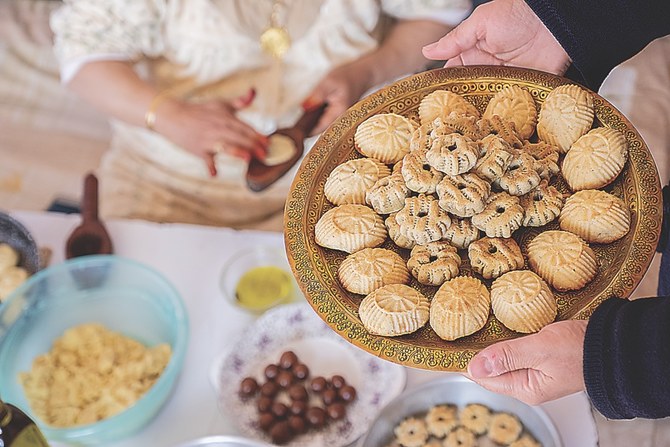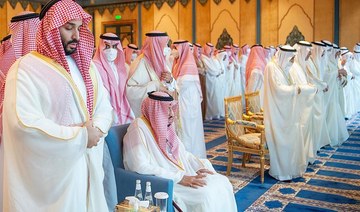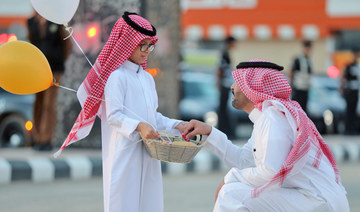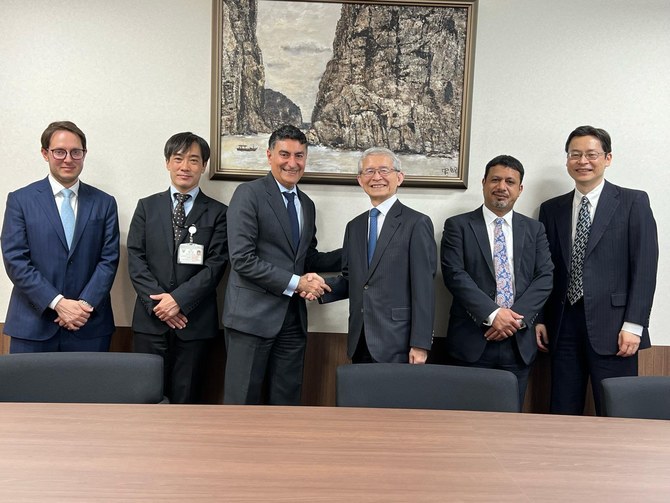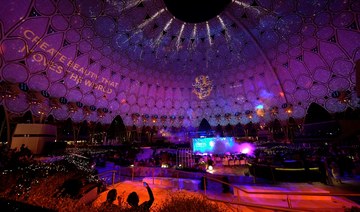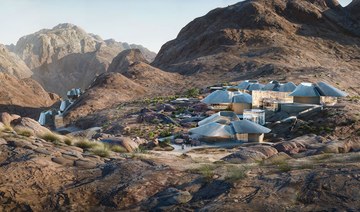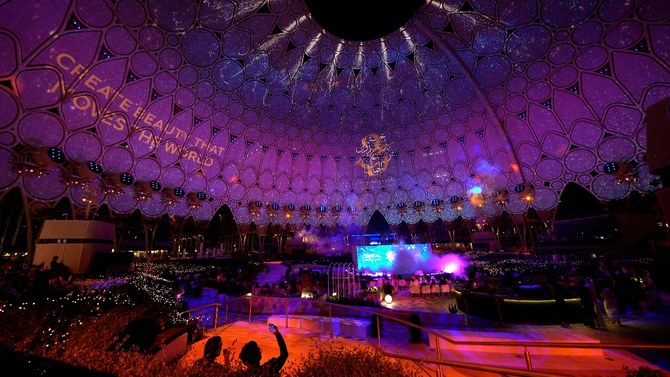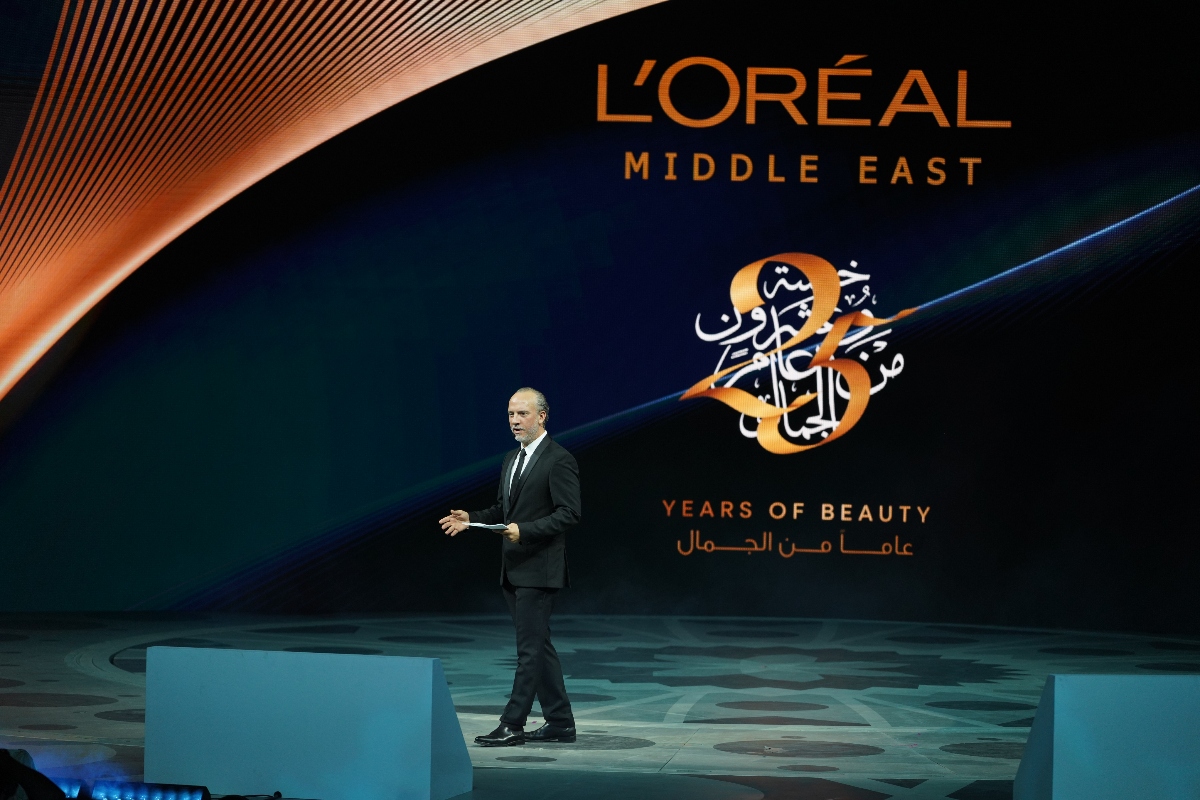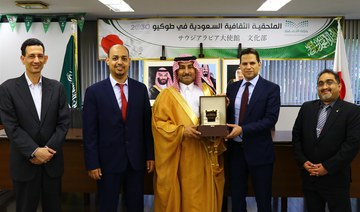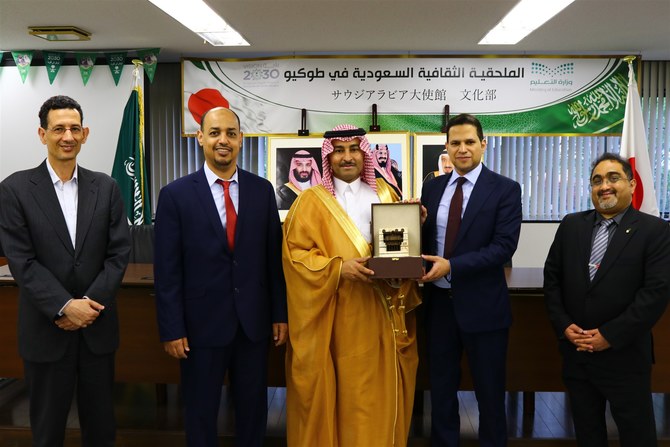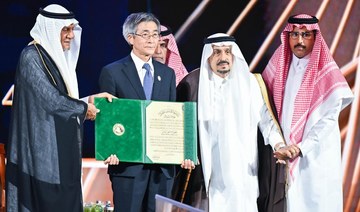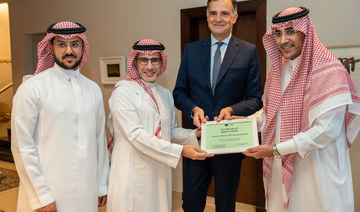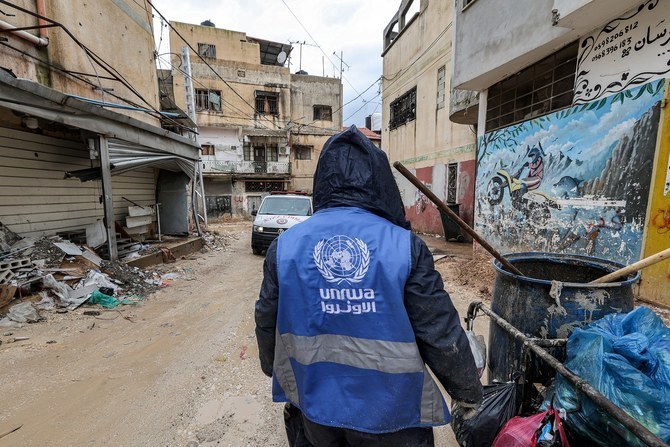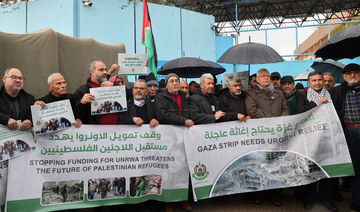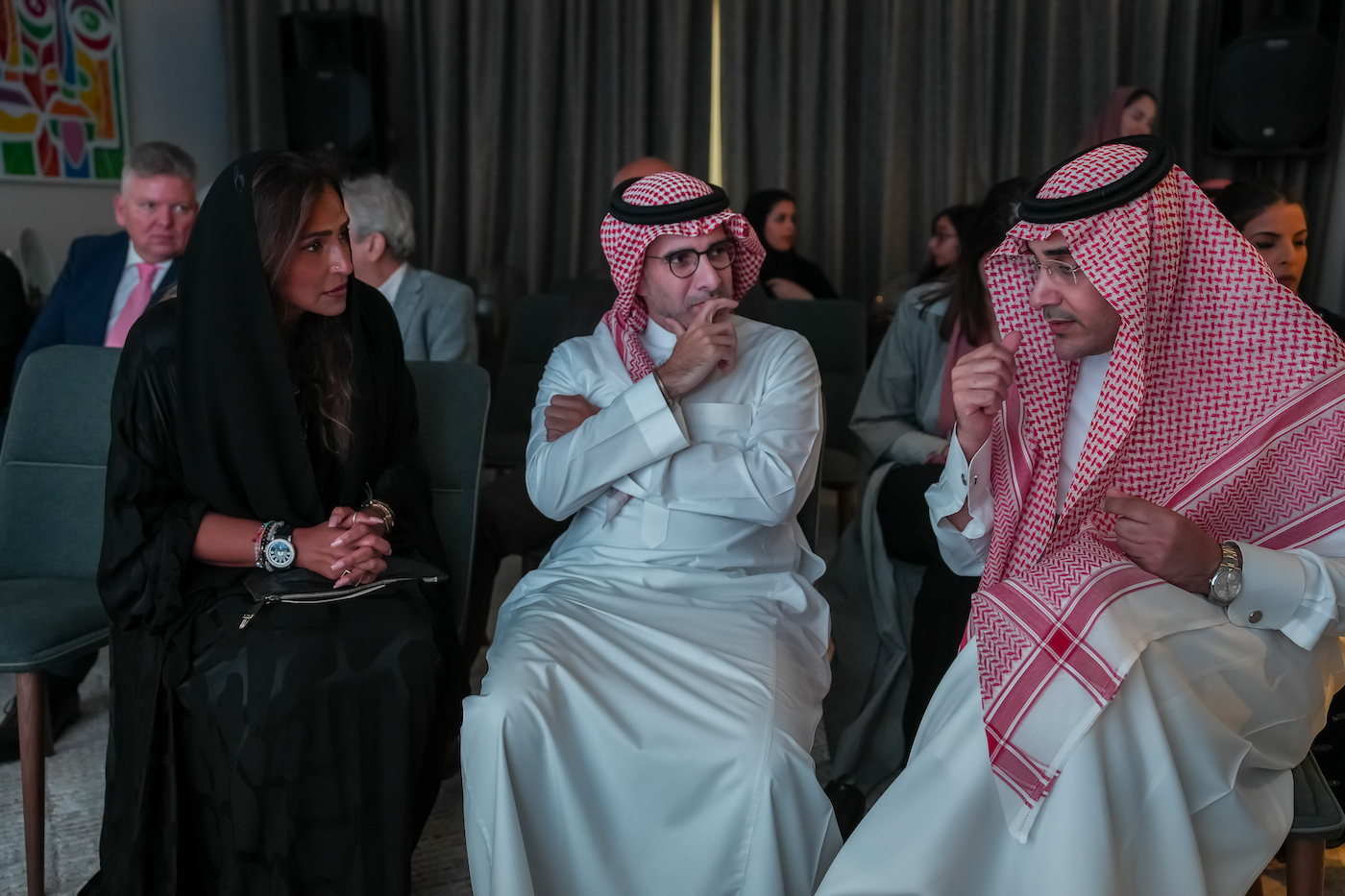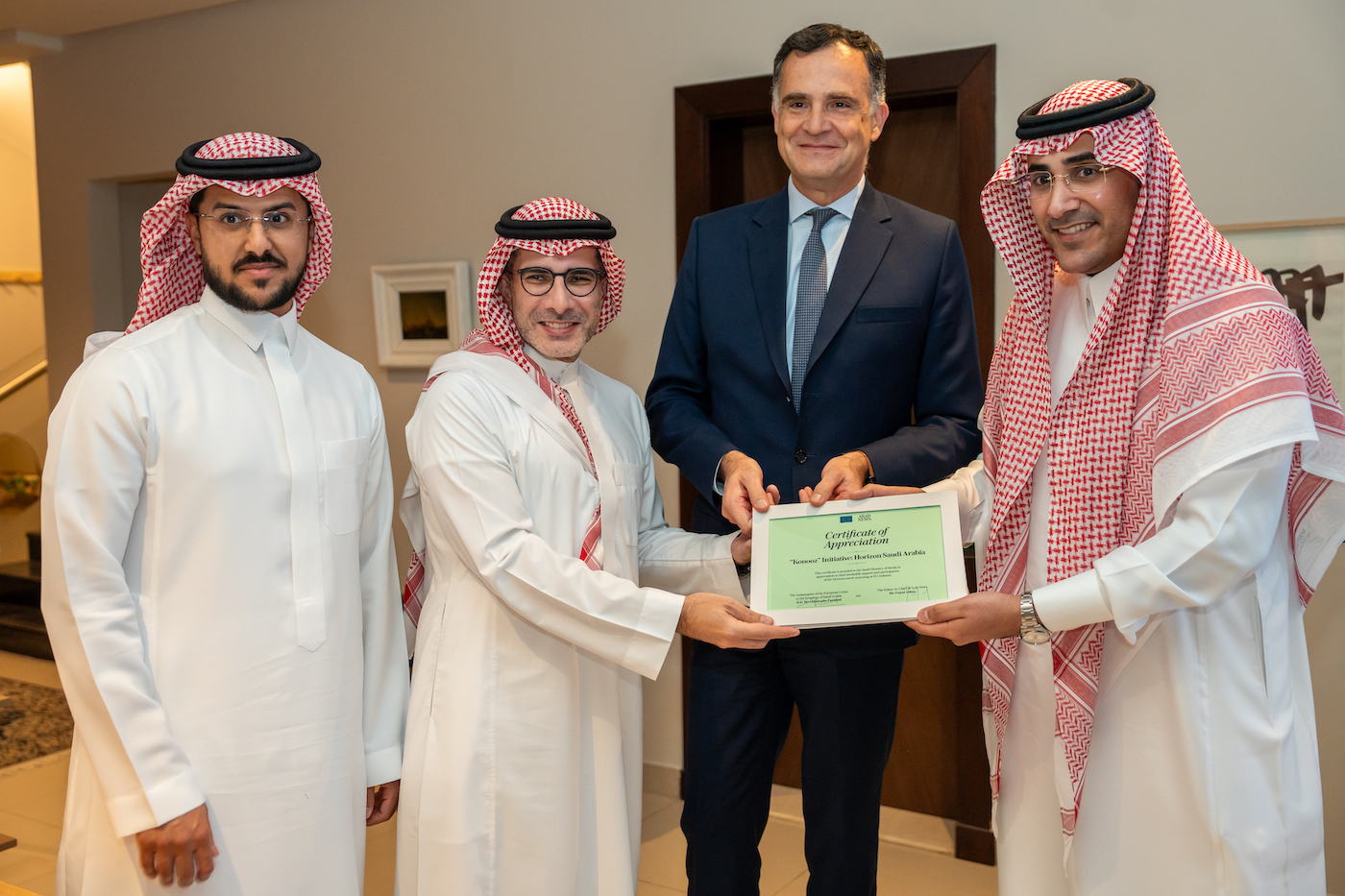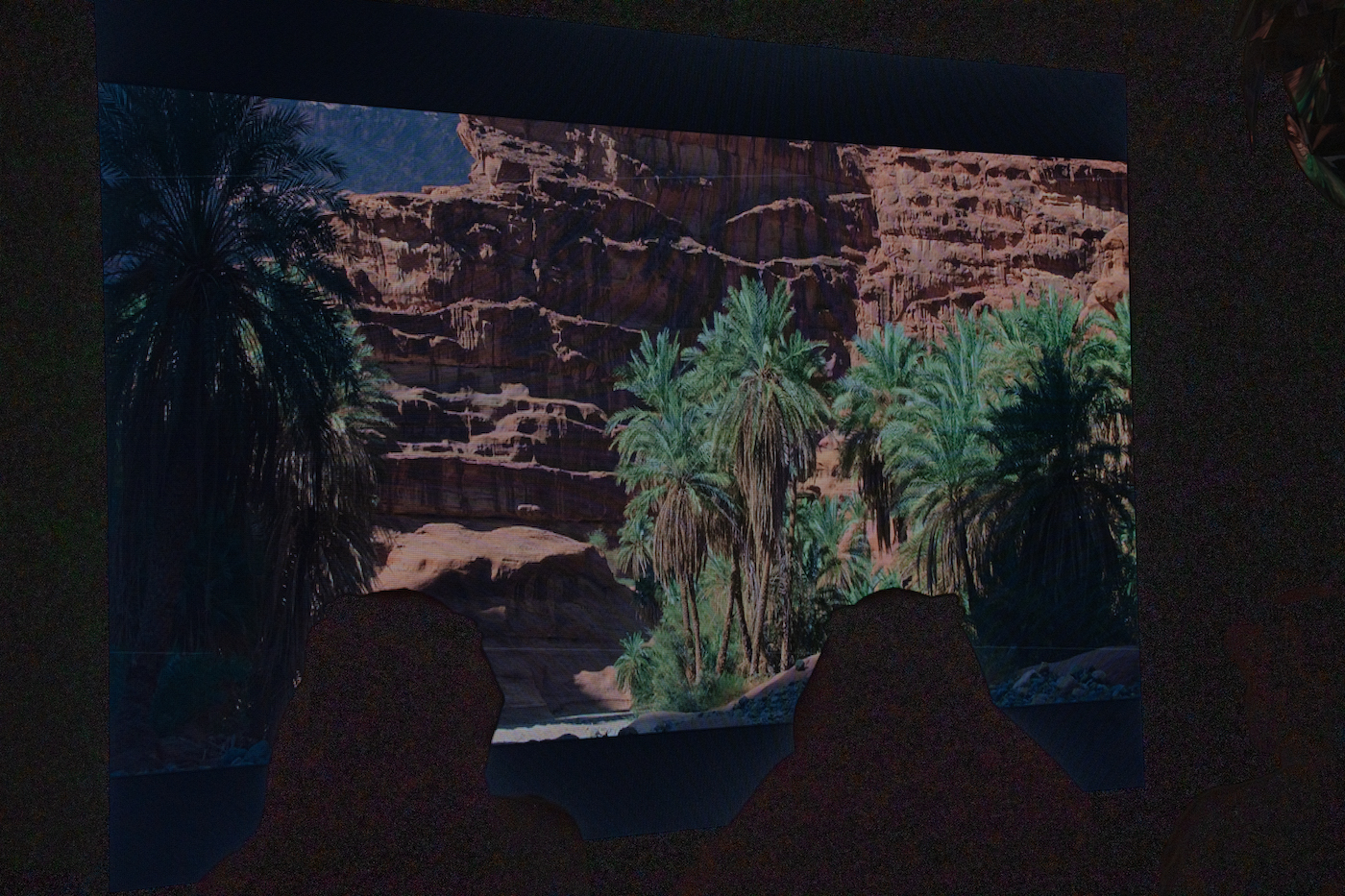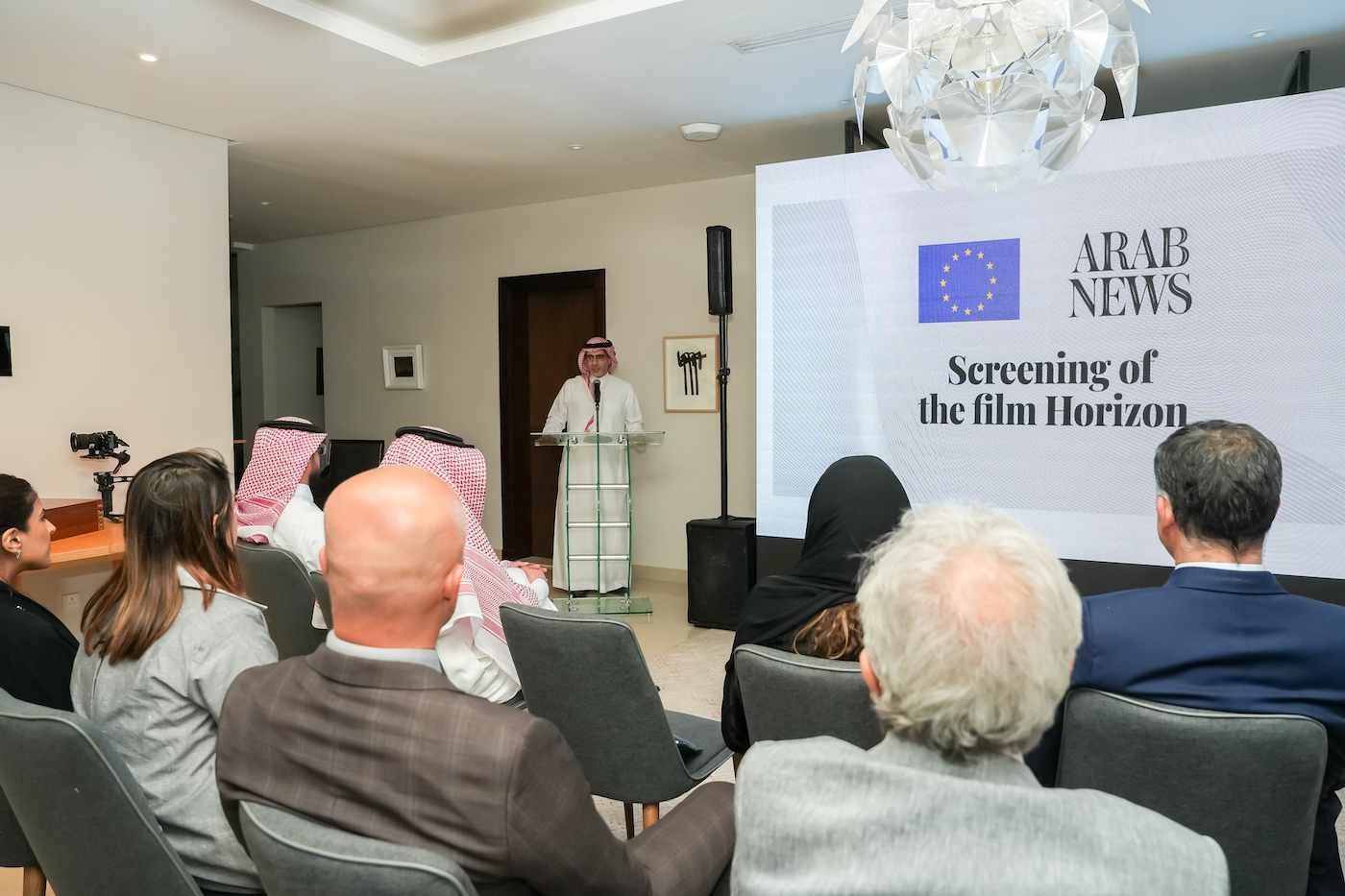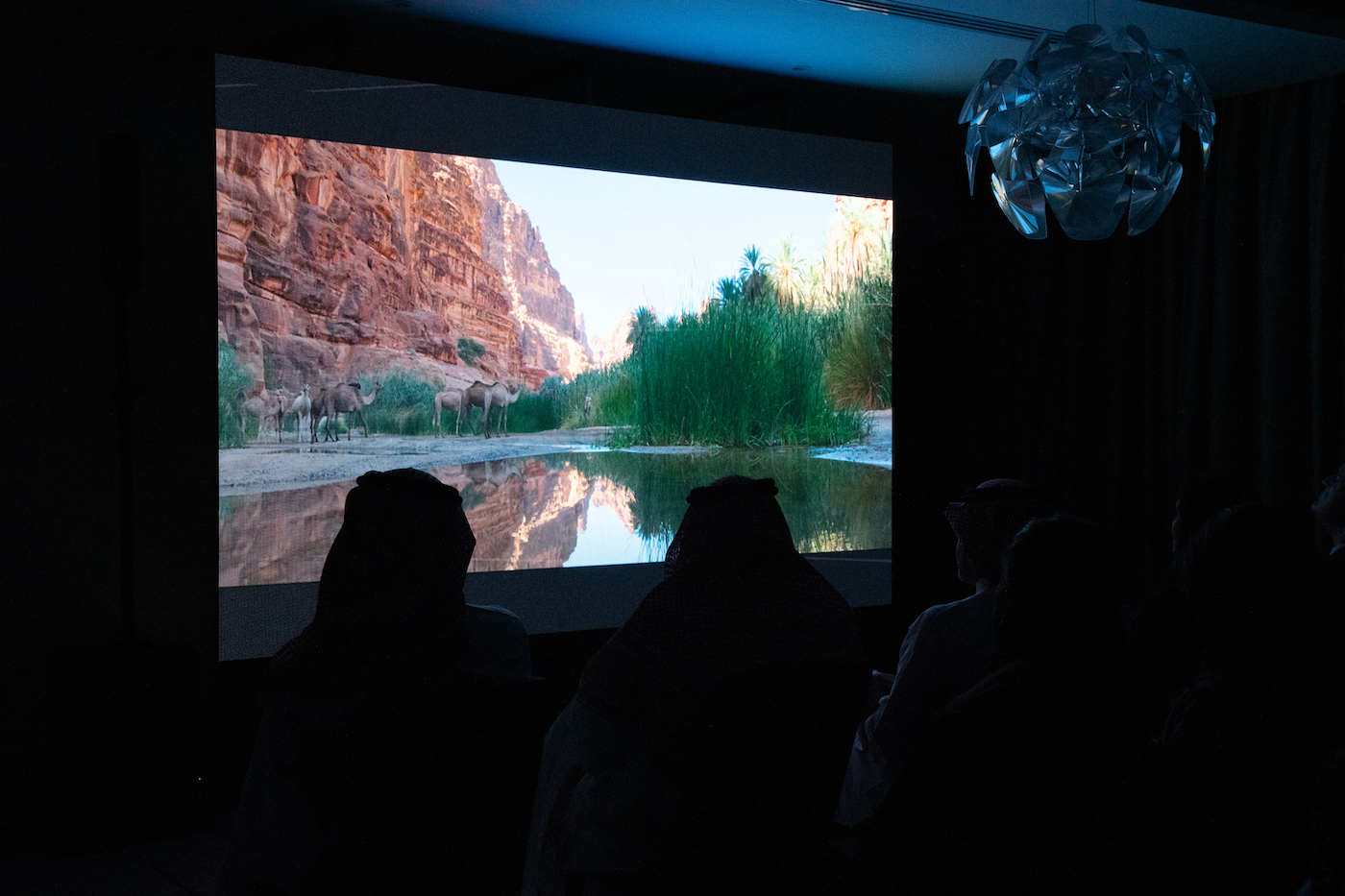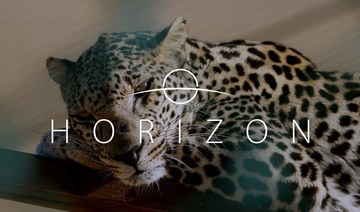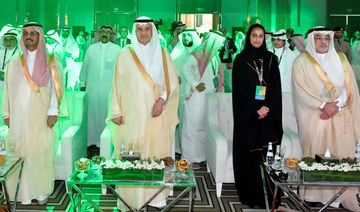JEDDAH: Muslims throughout Saudi Arabia are celebrating Eid Al-Fitr, also known as the feast of breaking the fast, which marks the end of Ramadan, the holy month of dawn-to-sunset fasting.
Each region of the Kingdom has its own distinctive set of traditions, but what they all have in common is a combination of prayer, charity, hospitality, good food, fine clothing, decorations, and quality time with relatives.
Eid Al-Fitr is a joyous holiday celebrated during the first day of Shawwal, the 10th month of the Islamic calendar. It brings together families and communities for sumptuous feasts, the giving of gifts, and colorful festivities.
Saudis were especially excited about Eid Al-Fitr this year as it was going to be the first time since 2019 that they would be celebrating the holiday free of the social-distancing measures and travel bans necessitated by the coronavirus pandemic.
On March 6, Saudi authorities announced the lifting of most COVID-19-linked restrictions, including the requirement for social distancing in public places such as the Grand Mosque in Makkah and the Prophet’s Mosque in Madinah.
More than 3.5 million worshippers observed Eid prayers at the two mosques.
Eid Al-Fitr falls on a different date every year. In accordance with Islamic tradition, festivities cannot begin until the first sighting of the crescent moon has been observed, meaning that some parts of the world may celebrate Eid Al-Fitr on a slightly different date to others. This year it is expected to fall on May 2 or 3.
In Saudi Arabia, the days leading up to the holidays are always hectic, with families rushing to get their best clothes pressed and perfumed, their homes decorated with colorful lanterns, and plates of chocolates, dates, mamool, and sweets kept in preparation for guests.
It is a tradition to buy new clothes and shoes to celebrate Eid Al-Fitr, so malls in many of the Kingdom’s largest cities are open 24 hours a day offering last-minute Ramadan deals. Beauty salons and barbershops are also jam-packed with patrons wanting to look their best.
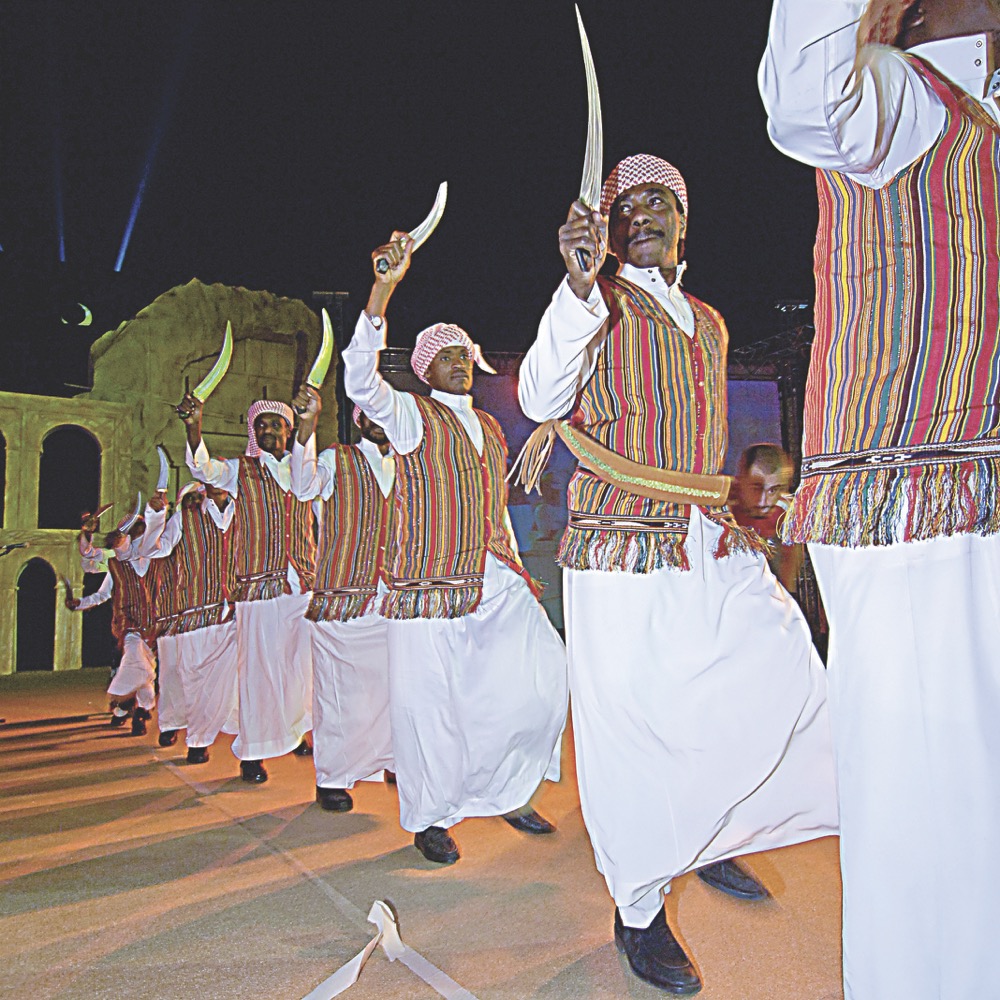
Each region of the Kingdom has its own distinctive set of traditions. (Supplied)
For many, however, it is food that plays an integral role in Eid celebrations. Saudis often joke about the exhaustion that sets in after a full day traveling from one set of relatives to another, gorging on mabshoor grilled meats, mountains of sweets, and lashings of sugary coffee.
But first comes breakfast.
In the Kingdom’s western Hijazi region, the scent of burning incense wafts through the typical family home as relatives gather at a large table set with ta’teema, a mix of sweet and savory finger foods and traditional breakfast dishes.
Sameera Hammad, a Jeddah-based caterer who specializes in traditional Hijazi dishes, has been serving residents of the city for more than 20 years.
Her belief in preserving the authentic recipes that she learned from her mother has allowed a new generation to experience culinary traditions that fill their parents and grandparents with nostalgia.
“I learned everything from my mother. These recipes are more than 50 years old,” she told Arab News.
Although every family has its own tastes and traditions, several features of the ta’teema are common throughout the Hijazi region.
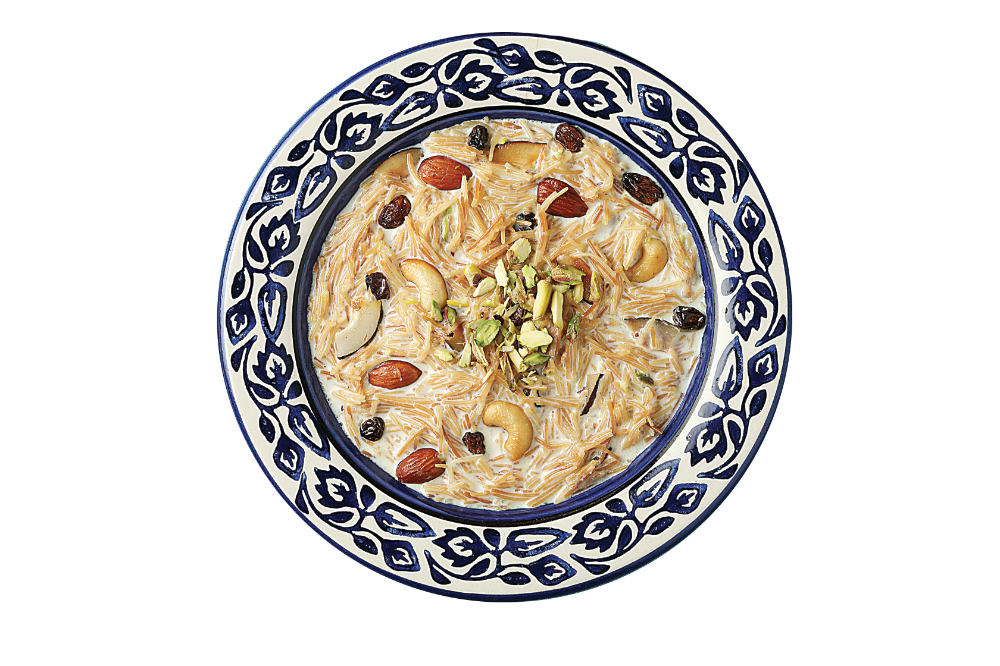
Hammad said: “Every household is different, but a Hijazi ta’teema is made of different types of bread like shuraik, tamees, suhaila, and futoot. There is an assortment of cheeses and fermented foods with pickles as condiments, shakshouka, fava beans, falafel, and sweet dishes such as masoob, labaniya, and jams to end the meal.
“One of the most important features of Eid is keeping tradition alive by having the whole family over for breakfast, taking days to prepare and assemble just like how our ancestors did. I still use clay pots to serve my ta’teema exactly the way my mother did. And that’s a tradition that will live on.”
Even though times are changing, many of the dishes, some of which originated in Egypt, Turkey, Iran, India, and Yemen, have made their way onto the Hijazi table, and have remained, keeping the authentic flavors alive year after year.
“The only difference now is that it is placed atop a table, unlike how it was before on the floor,” Hammad added.
In Saudi Arabia’s Eastern Province, the women mark Eid Al-Fitr by flaunting their henna-dyed hands and their finest dresses, while the children excitedly anticipate gifts of money and candy.
After the men finish their round of greetings at neighboring homes, they make their way to the family matriarch’s house for a breakfast of mashed wheat and barley stew with fresh lamb cooked in a clay pot.
For families in the north, food is not the only tradition that brings households together at Eid. A folk dance known as Al-Deheyeh, a variant of the Ardah dance, is an integral part of local festivities.
As for the Kingdom’s southern regions, Eid is not just a social affair reserved for close family. In many neighborhoods, a collective meal is prepared and served on tables that stretch the length of the street, adorned with some of the region’s favorite dishes.
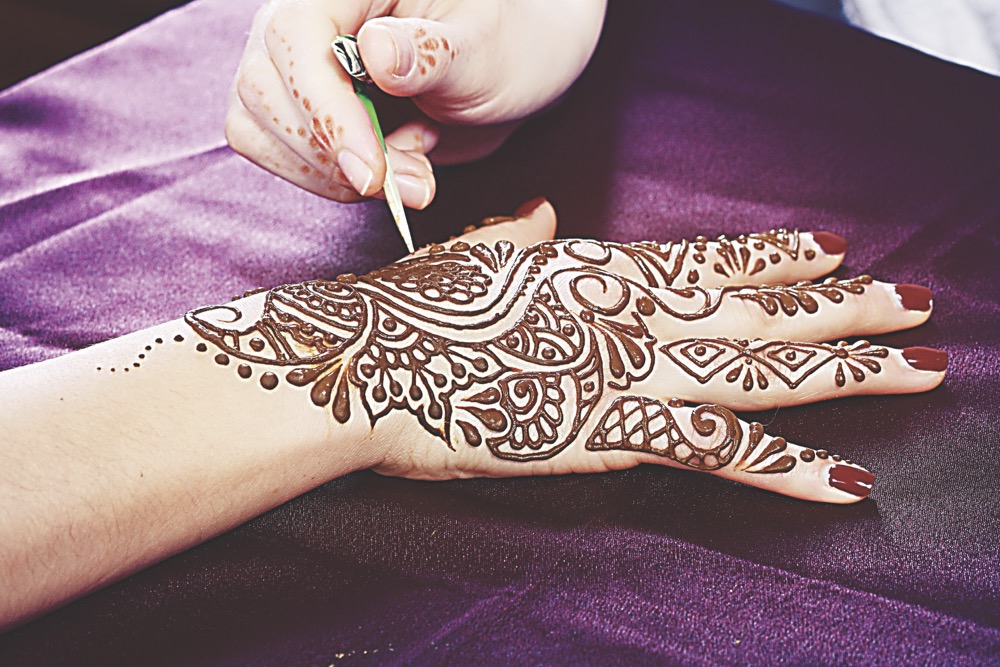
In the Eastern Province, salons are booked out by women for henna tattoos. (Shutterstock)
Ingredients such as ghee, honey, fish, flour, barley, dates, lamb, and locally grown vegetables are essential elements for their savory stews.
Among the local favorites are an okra stew; a sourdough bread made with dried onions and milk; salted dry striped mackerel native to the Red Sea, which is considered a delicacy; a lamb stew with potatoes; and mashed banana cooked with ghee, honey, and pieces of brown flatbread.
Nahlah Zamim, a native of Jazan, told Arab News: “Customs of the south are deeply rooted in family traditions. We’ve resisted the changing of times and kept our family values and traditions alive every year because we understand their importance.
“Though it might seem that food is the most important thing, that’s how it is in every tightly knit society. Breaking bread with friends, family, and neighbors keeps that community close and happy.”
Festivities in Jazan are often accompanied by traditional dances performed by local men. “A celebration of song and dance always precedes their breakfast,” Zamim said.
Meanwhile, local children race from house to house collecting Eid gifts of candy and money. “It’s their playground,” she added.
Until investments in tourism, heritage projects, and the arts began to shine a light on Saudi Arabia’s diverse cultures and traditions, not a lot was known about them beyond the borders of each region.
For many Saudis, the Eid holidays this year are an opportunity to highlight their unique local traditions, carefully preserved and handed down over generations.



